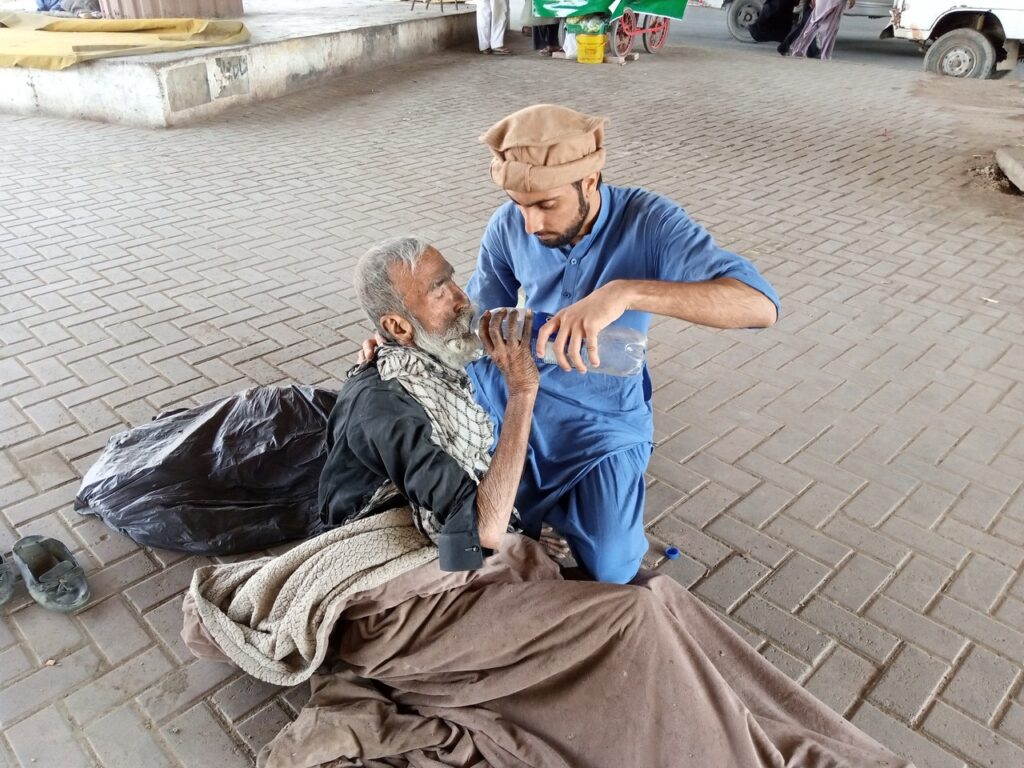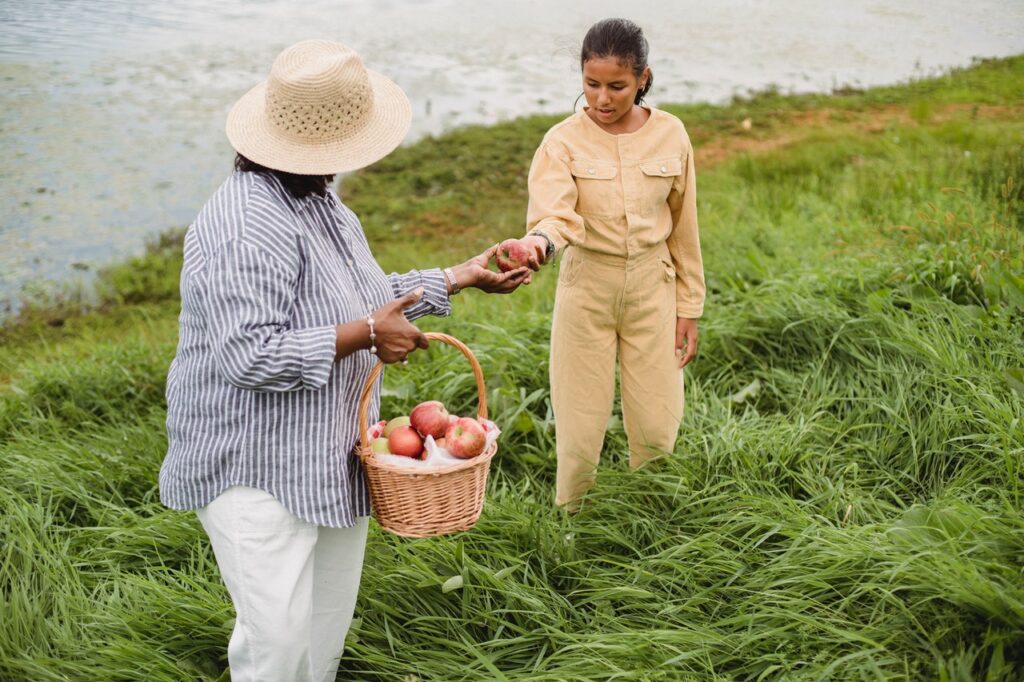The Pandemic of Kindness during the COVID-19 wave taught us, giving does make us feel better and live healthier. We must continue the wave of generosity to feel happier and live richer lives!
Nona Walia
The darkness of the pandemic must be overcome with personal and collective well-being. When it comes to happiness and mental health, the big mantra is ACT AS YOU WANT TO FEEL. Doing good makes you feel good. It really works. As the glum darkness of the pandemic loomed, those that reached out to make others feel better, with random acts of kindness, slept better and felt more fulfilled. A new trend of “intersectional kindness” emerged, a phrase coined to encourage people to reach out beyond their circle of family, loved ones and acquaintances, and target kind acts toward individuals who battle difficult conditions. Helping others or “Doing unto others” could very well be one of the best things you can do for yourself to feel great daily. As we celebrate India’s 75th Independence Day, every individual must promise themselves an era of ‘Collective Well-being’ and ‘kindness‘ to get through the turbulent waves of the pandemic. Personal healing follows collective healing. Freedom from Pandemic’s pain and suffering is possible, by making others happier. Contentment and happiness are within everyone’s reach: Do good to feel good.
Are you perplexed by the correlation between kindness and mental health? Here are some facts. The future of individual happiness is all about ‘Collective Well-being’. Acts of kindness, generosity triggers a wave of ‘collective well-being’, at a time when people feel powerless to change the pandemic blues, overpowered with feelings of dark imaginings there is nothing more uplifting than channeling your thoughts towards helping others. Receiving and giving love and healing in a pandemic is hugely therapeutic and best way to escape from the bad news. This has triggered a pandemic of kindness, which helps the giver too, making them trigger ‘happy hormones’. We have also seen, in hard times such as the pandemic, backed by a body of research suggesting that helping gestures assuage worry and concern. Often during emergencies and crises, people start performing acts of kindness at random. Helping others through a crisis by performing good deeds can make you feel in control—even give you bursts of euphoria called “the helper’s high” from dopomine and endorphin squirts released in the brain. Contributing, giving, volunteering, donating and performing kind acts, connects you to other people in a deeply meaningful and more humane way. Numerous studies have linked kindness with improved life expectancy. One such study by Doug Oman of the University of California, Berkeley, found that elderly people who regularly volunteered were 44% less likely to die over a five-year period. As author of Being Bold, Richelle E Goodrich writes, “Everyday grants us opportunities to do good. Take advantage of them. Do good. Be happy.”
There’s Science that backs this feeling of happiness, in the late 1980s, economist James Andreoni coined the term “warm glow” for the biggest reward a donor gets from the satisfaction of knowing that she’s done something good. Being nice to others also triggers several happiness chemicals in the body, according to Stephen G. Post, director of the Center for Medical Humanities at New York’s Stony Brook University. The chemicals include dopamine, endorphins that give people a sense of euphoria, and oxytocin, which is associated with tranquility, serenity, or inner peace. A new recent study published in the journal Psychological Bulletin also suggests that performing acts of kindness and helping other people can be good for your health and well-being. Mental health experts during the pandemic felt how acts of benevolence during the pandemic improved mental health. We have seen amazing acts of compassion from our frontline workers putting their own wellbeing at risk to look after others; we have also seen many smaller random acts of kindness from strangers organising langars and helping people. In his book Why Good Things Happen to Good People Stephen Post writes, “The remarkable bottom line of the science of love is that giving protects overall health twice as much as aspirin protects against heart disease.”
Generosity makes you happier and richer in unexpected ways!
Those who flourished in the pandemic weren’t the ones who were making great wealth. They were the ones motivating others to succeed. They were the cheerleaders of other people’s success stories. Being out there makes others happier, lifting them up. This enhanced their own happiness. Your acts of kindness can be simple words, sharing skills or sharing food. But it changes the chemistry of feeling good in the body. Multiple researches are going on around the world to enable flourishing in a pandemic not just living. The concept of human flourishing is interesting, in part because it doesn’t necessarily include wealth as an indicator of achievement. IT means finding a flow that excites you, doing something for others that is key to flourishing and promoting good mental health. Flourishing, a state of optimal emotional, psychological, and social well-being has shown to have several health benefits for people. Says Tyler VanderWeele, head of Harvard’s Human Flourishing prog ‘You can enhance your flourishing not only by changing how you think, but also by changing how you act.’ That’s where Acts of Giving help the giver feel happier.
On days when life feels heavy, try doing something small for someone. You will see the difference. sociologists Christian Smith and Hilary Davidson in The Paradox of Generosity: Giving We Receive, Grasping We Lose discovered, those subjects who made charitable donations, triggered the same happiness as if they had won a monetary award for themselves. Psychiatrist Dr Alok Kulkarni says, ‘I’ve seen people literally grow their grit with acts of kindness. They were struggling but put themselves out there. Did it help, yes they were sleeping better and were happier. They felt in control. Sometimes, you have no option but to become stronger. COVID-19 has thrown up a bevy of complex challenges, and one of it is the variety of mental health problems that have come to our attention. Having a strong motivation is the key. Second, have a social support system as it serves as a buttress against the challenges. It is vital to be positive during these unprecedented times with acts of kindness. It is equally vital to seek help when the problems become overwhelming.”
A kinder heart will give you a happier mind!
4 ways you can start small by acts of giving:
Give a smile: The act of giving can be small. It could start with a smile. Or it could be sharing your skill, having a conversation or just smiling. Being kind is likely to make someone smile and if you see that smile for yourself, it might be catchy.
Righting a wrong: Empathy can never go wrong. The biggest path to healing others is trying to right any wrong. Doing a kind act to make someone who is sad feel better can also make us feel good – partly because we feel the same relief they do. The act of setting things right can be liberating. You can set things right with a family member or friend, or associate yourself with a cause, it makes you feel good as you are active about bringing about a change.
Become a kinder version of yourself: Doing good makes you feel happier. But keep increasing your kindness dose. Upgrade your kindness software especially in a challenging world, where there is toxicity. Don’t take pictures of your kindness activities and post on social media. Greater happiness comes from doing acts of kindness anonymously. This will lead to more powerful feelings of happiness. Don’t give to flaunt.
Indulge in Science of Good Deeds: What makes us perform good deeds? What inspires you to move out of your comfort zone and help out. When we act on behalf of other people, research shows that they feel greater comfort, less stress. When we engage in good deeds, we reduce our own stress. During this stress response, hormones like cortisol are released, and our heart and breathing rates increase — the “fight or flight” response. If this stress response remains “turned on” for an extended period, the immune and cardiovascular systems are adversely affected. Altruistic emotions — the “helper’s high” — seem to gain dominance over the stress response. The “compassion-altruism axis” gives you happiness high. This is the care-and-connection part of the brain that increases the bonding ‘oxytocin levels. When you provide social support everyone benefits, even you.
Nona Walia is a successful journalist and writer. She’s the author of The Art of Mental Toughness: Survival Lessons from the Pandemic. A motivational expert, she is passionate about helping people live their lives in the best possible way. A wellness warrior and a wellness blogger, Walia has done certified online course on Science of Well-Being from the Yale University. She runs a Wellness Channel on YouTube. She has worked with The Times of India for 24 years as a Senior Assistant Editor and is also the acclaimed writer of many articles for Thrive Global.


